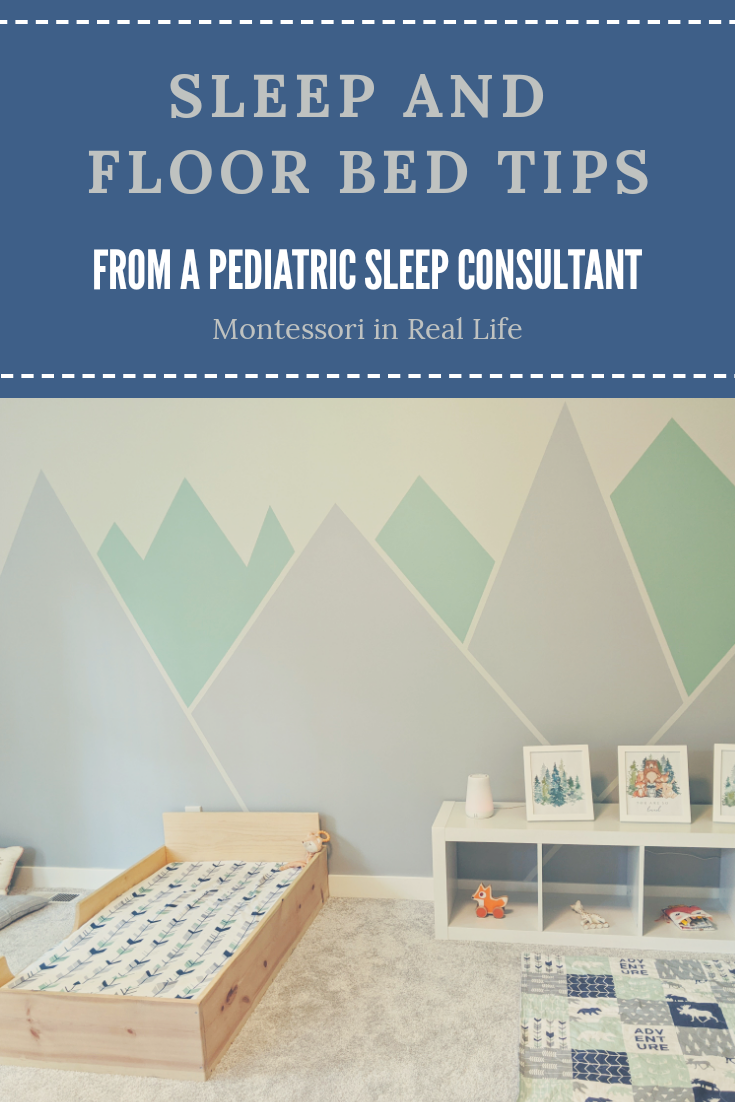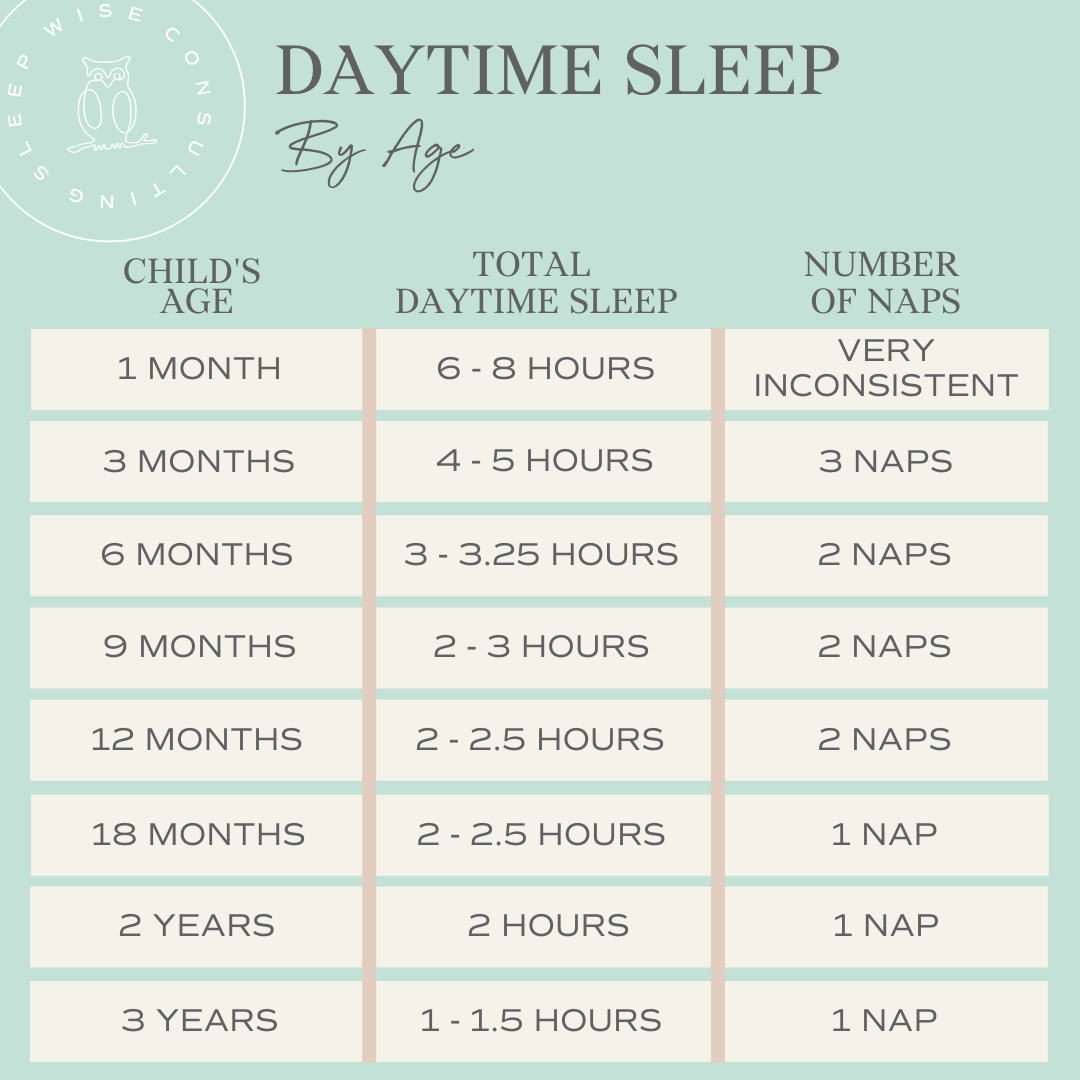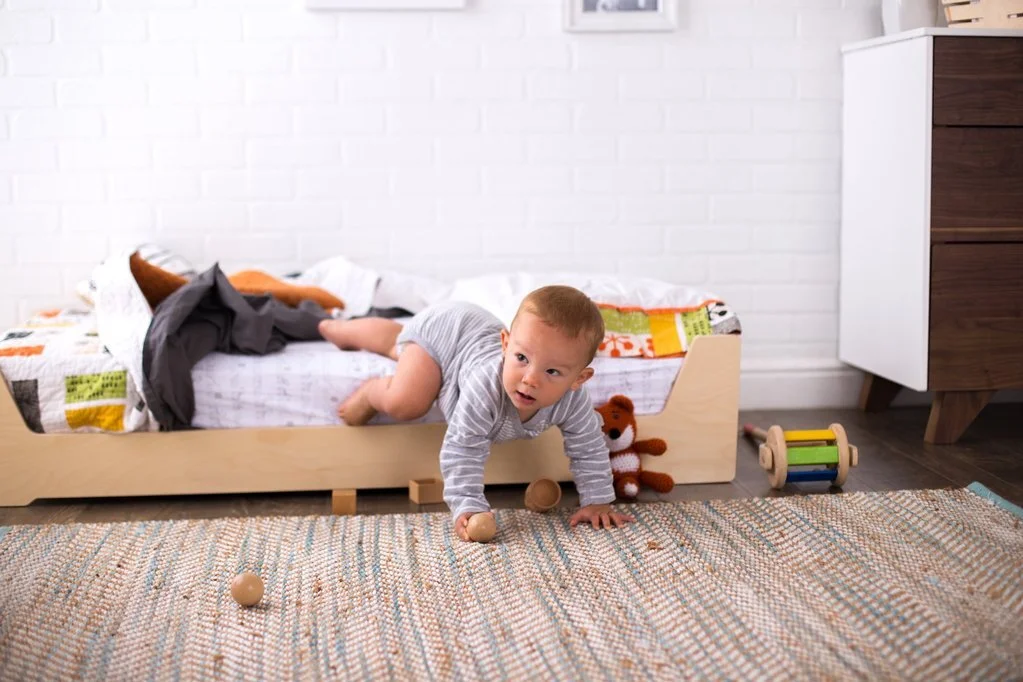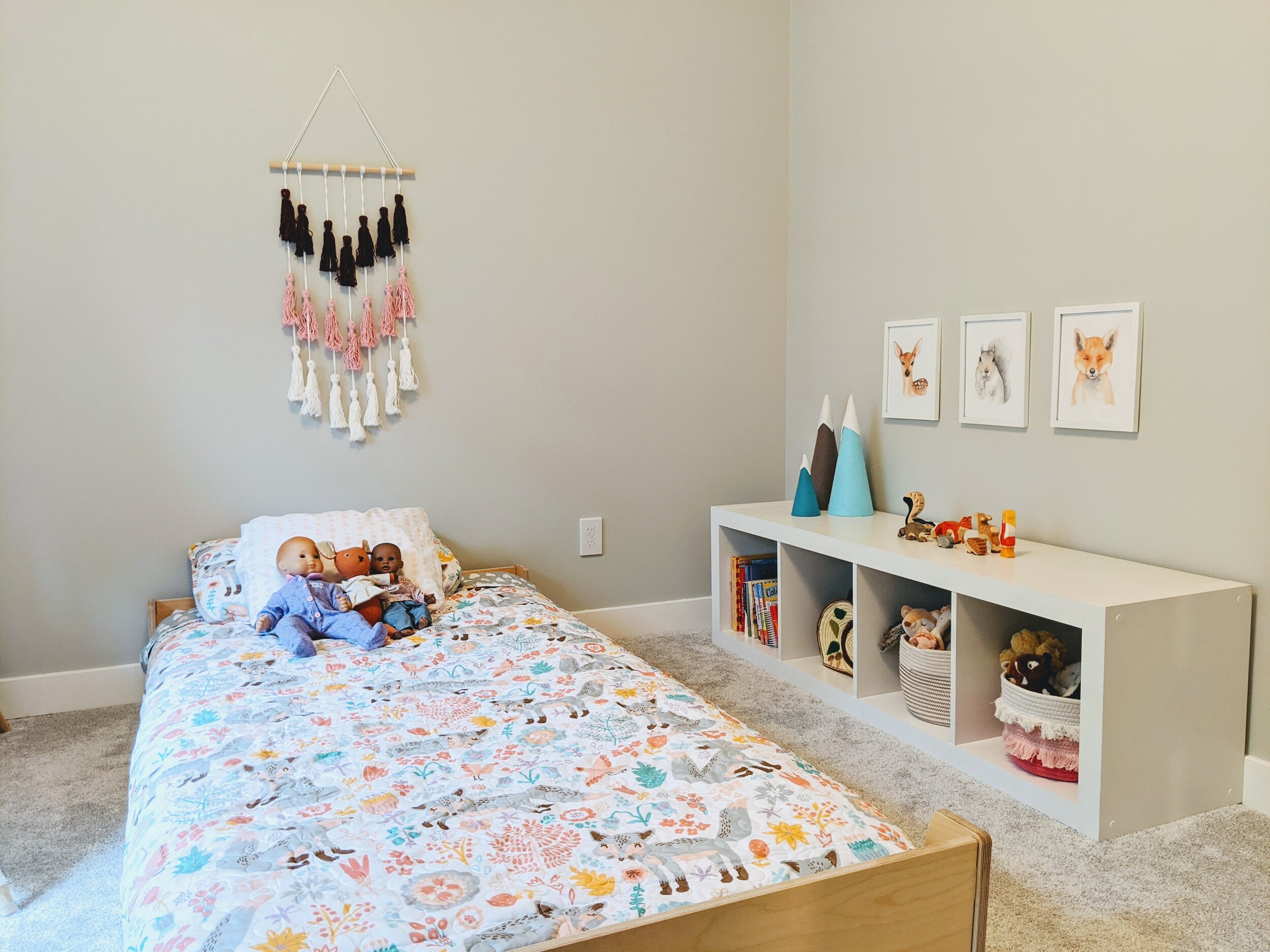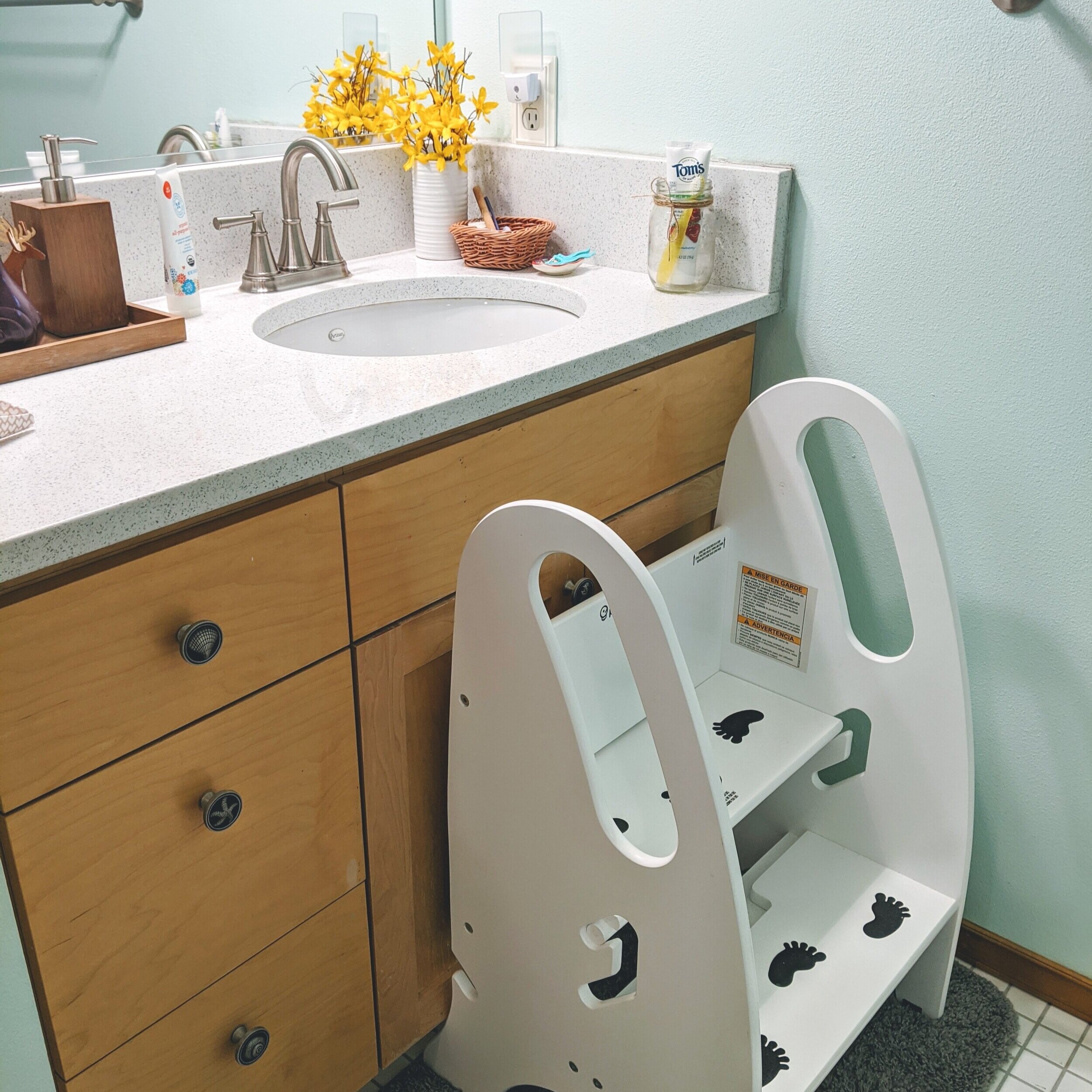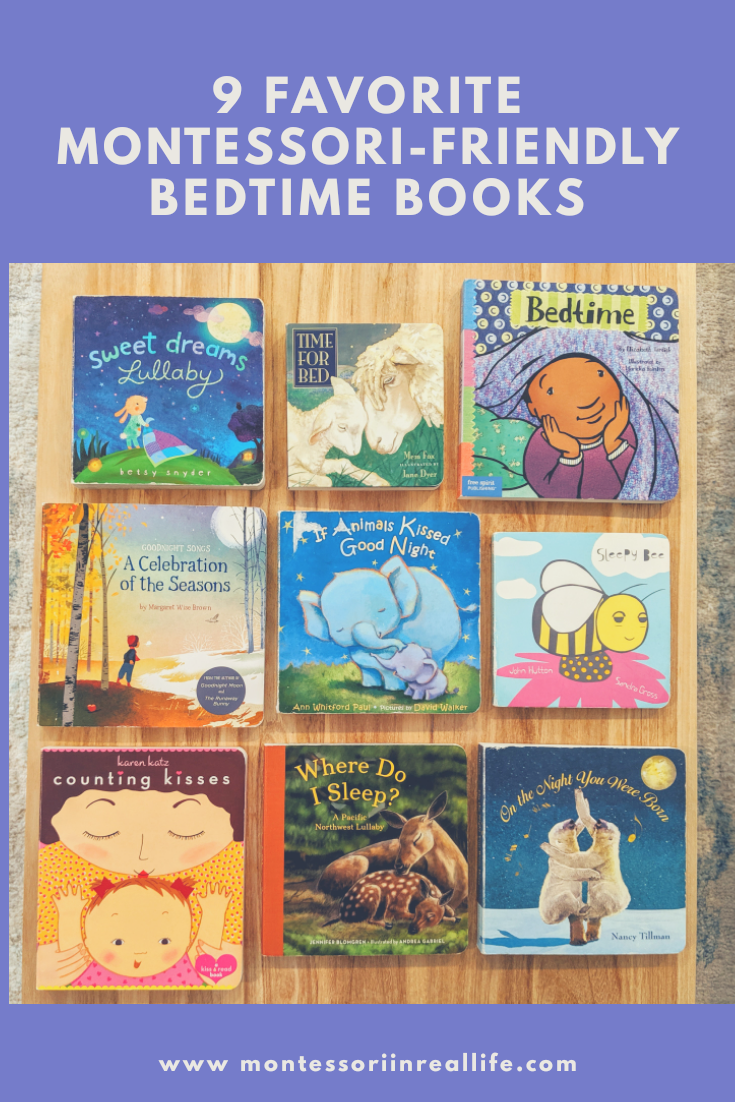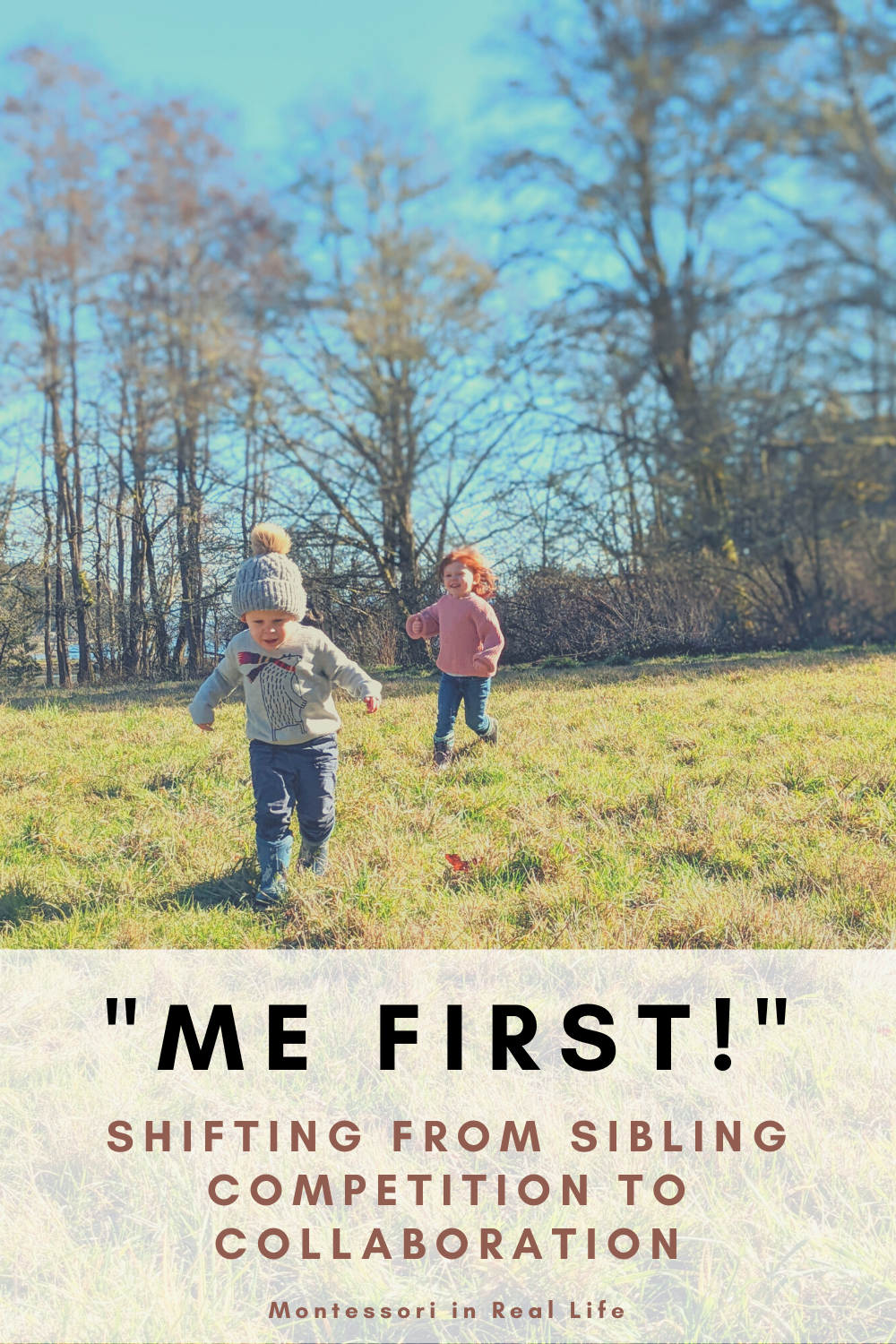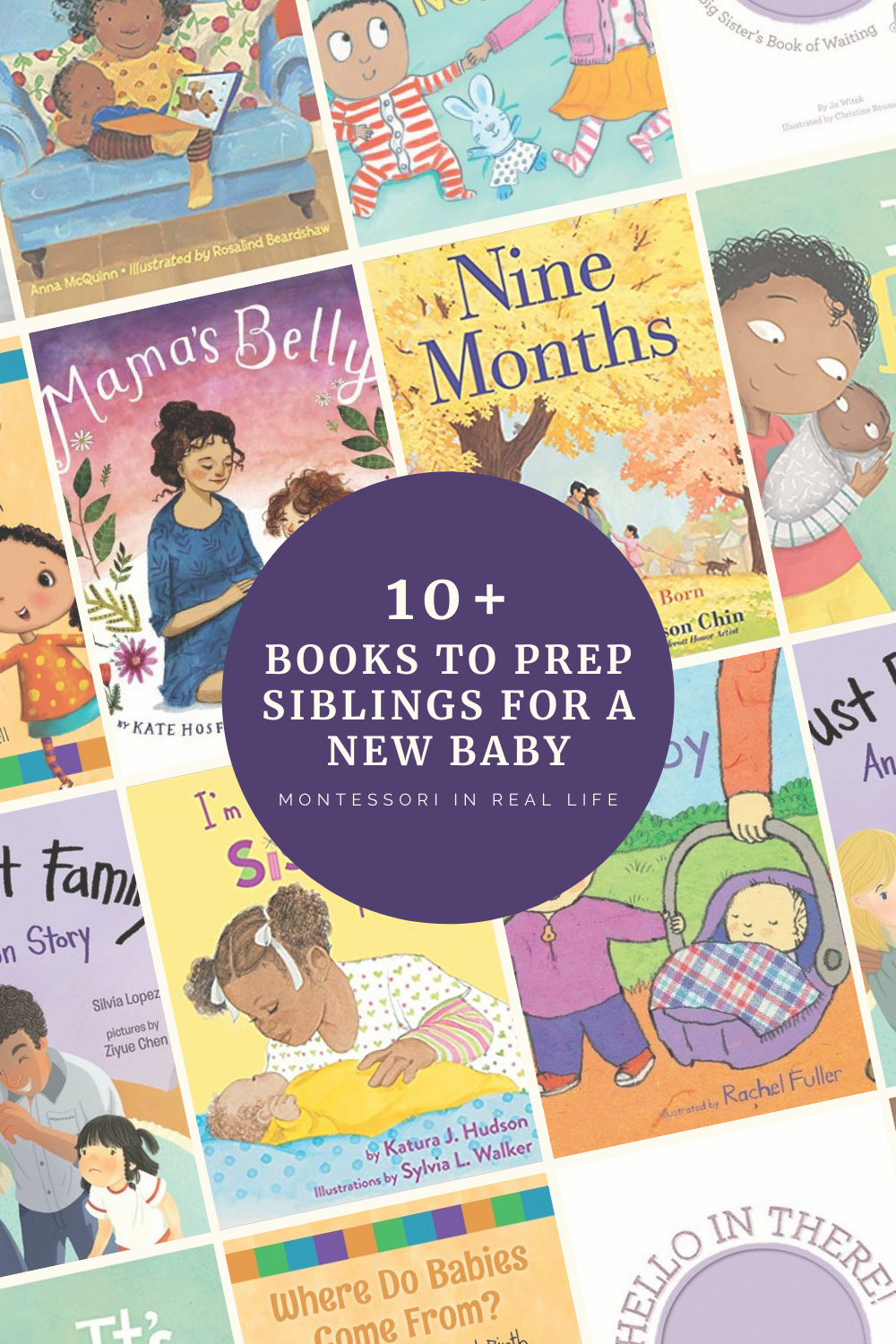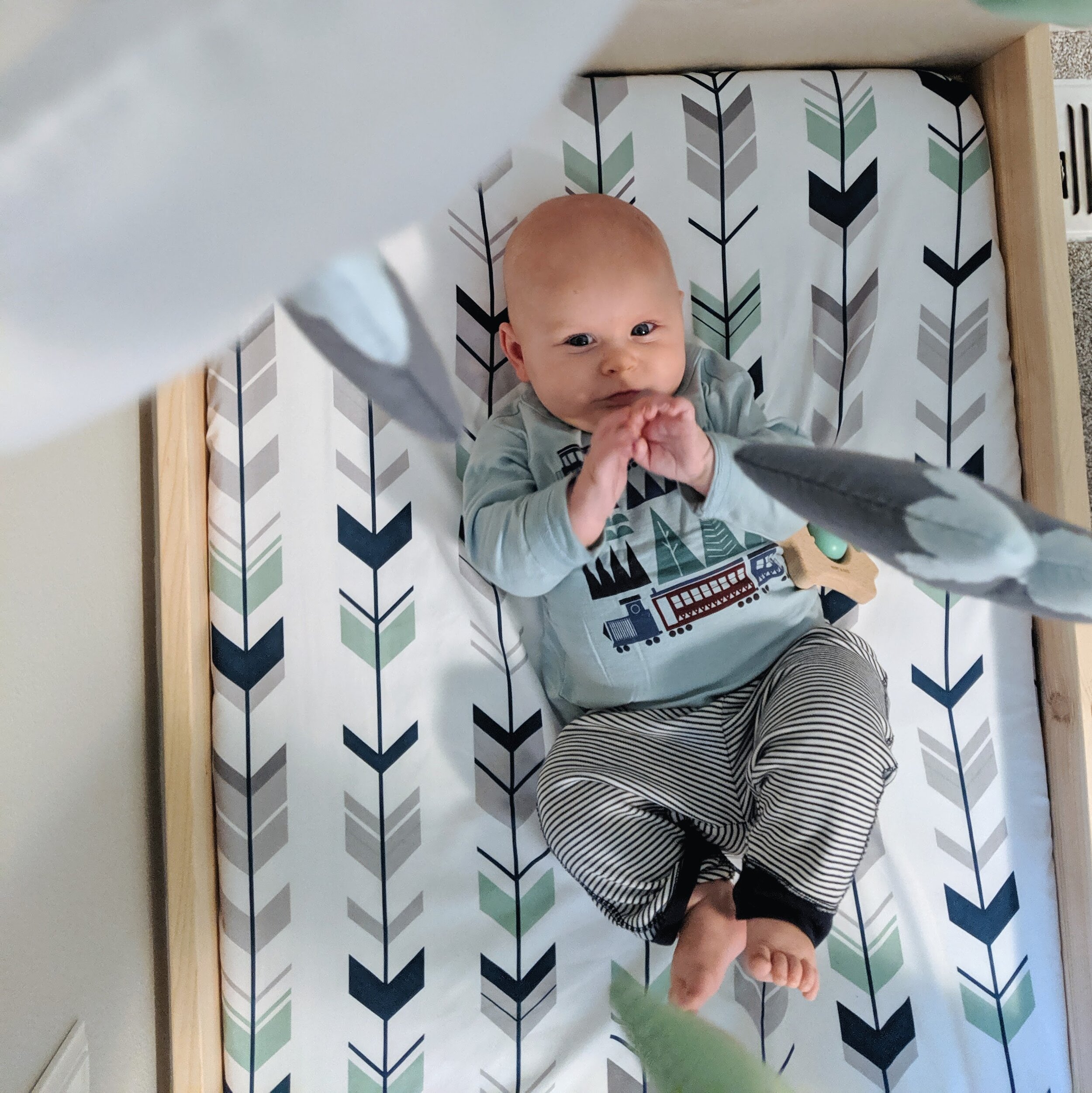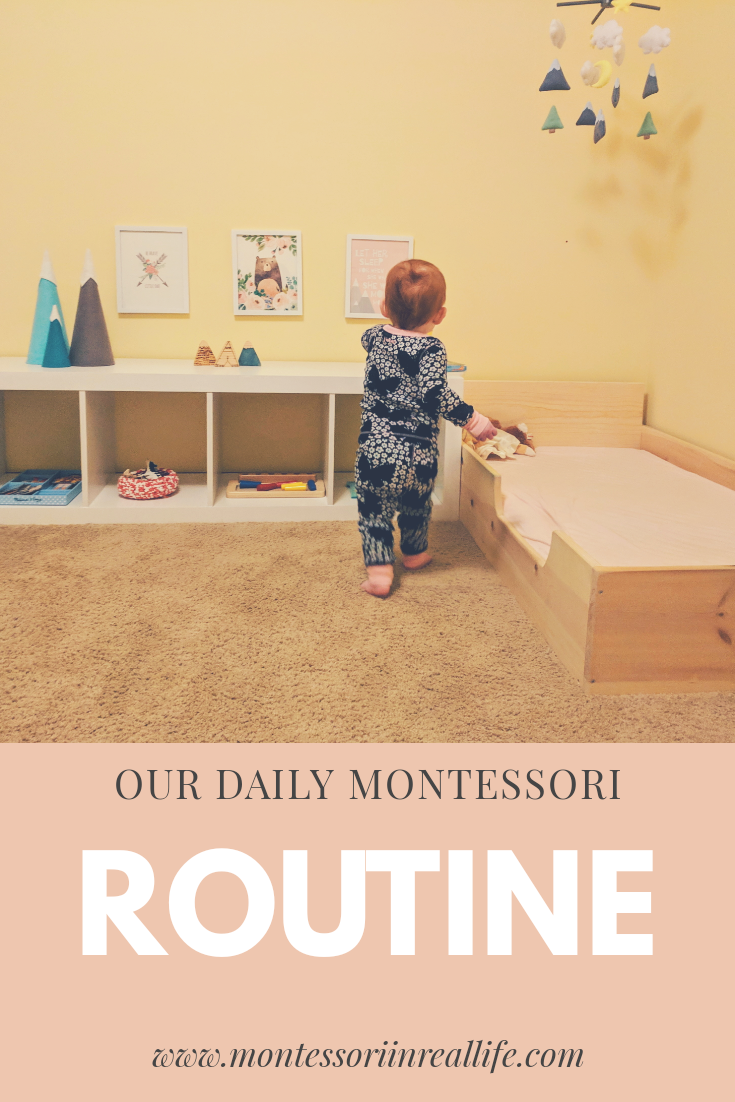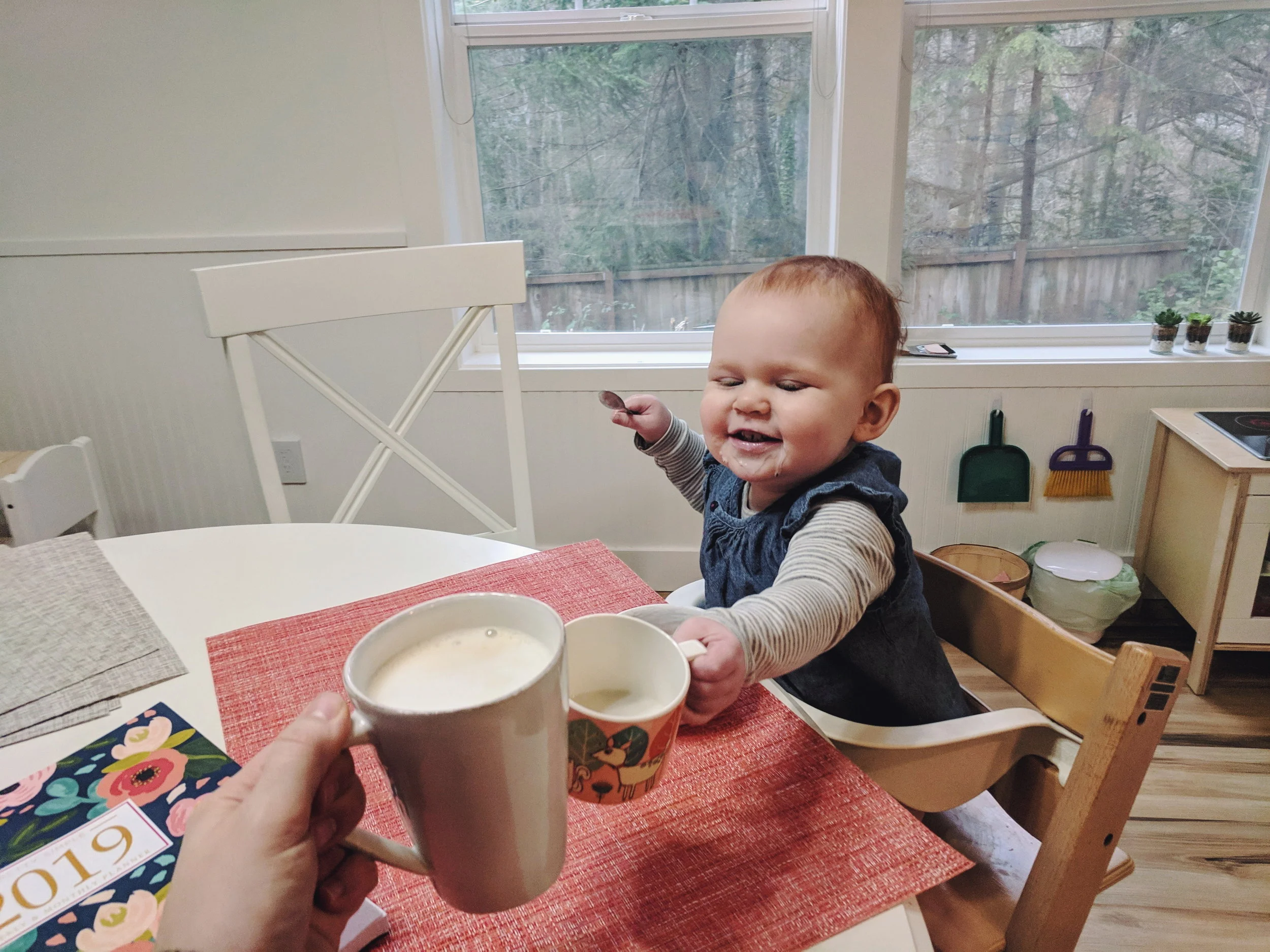Do babies and children just instinctively rest when they need to rest or do they need our assistance?
I believe that some babies are born good sleepers, however most are not and need to be taught how to sleep well. Sleep is learned skill just like getting dressed, tying your shoes, or riding a bike. However, I do believe once your baby has that beautifully built foundation for independent sleep it only takes a little encouragement and the proper wake times for them to know that it’s time for rest and even be eager to go to sleep.
Can you define sleep training in the context of self-soothing? What do you think are the biggest misconceptions about sleep training?
Self-soothing is just one part of learning how to sleep, but it is the main part of independent sleep. When your child learns to self soothe it usually means they can calm their own body and drift off to sleep on their own without relying on something external. When a child is capable of falling asleep independently, you’re going to see more consistent sleep patterns come about. We all have our own self soothing strategies – pillow position, window cracked open, favorite blanket, no socks etc. Helping your child find theirs is such a gift. Some children suck a finger, twirl their hair, or hold a blanket if at the appropriate age to have one. A few of the biggest misconceptions I hear are you have to use cry it out, it’s stressful for your child, or they won’t feel attached anymore. I want to take a minute to debunk each one of those. Our method at Sleep Wise is not traditional “cry it out”. While there may be some tears, you can absolutely comfort your child and work with them on these new sleep skills. Remember that it’s never too late to start. The second thing I often hear is that sleep training is too stressful for children, but I would argue that not sleeping enough or fighting sleep is equally or more stressful (and research backs me on this) and finding what’s right for your family is the best choice. Lastly, I often hear, “my child won’t love me as much or feel as attached to me if they are sleeping on their own.” I get it!! I’m a mom of 3 and I love those sweet snuggles and individual times with each of my children, but I promise seeing them wake up each morning well rested and happy is a win. Check out our blog on sleep training and attachment parenting if you want more information here: https://sleepwiseconsulting.com/attachment-parenting-sleeptraining/
How can parents set up healthy sleep habits from birth? When does routine become important?
Yes, you can absolutely start from the very beginning and lay a great sleep foundation. In the newborn days it’s just a gentle repetitive process. If you were to choose a newborn plan with us there is no crying involved at all with sleep. They are just too tiny and need to still eat quite often. Starting right from the beginning allows you to encourage self-soothing skills and by 12 weeks little ones are peacefully drifting off to sleep on their own and sleeping 10-12 hours at night with feeds as needed. Around 4 weeks is a great time to gently start thinking about a loose routine. Using an eat, play, sleep routine will help your baby learn to fall asleep without feeding which is a great start. Don’t be afraid to try laying your baby down drowsy and see what happens. A dark room, sound machine on, and soothing as needed is a great way to start! Often babies will surprise us and fall asleep on their own.
Could you give us a sample bedtime routine for an infant? How about a toddler?
Bedtime routines are so beneficial in teaching your child that sleep is coming. I like a routine to be simple and predictable. For most children about 20-30 minutes is good, maybe a bit longer on bath nights. For a baby birth to three months I would aim for something like this – bath, lotion, jammies, a book, feed, kisses, goodnight. Once a child is older than 3 months of age it’s important to move the feed to the beginning of the bedtime routine. This helps ensure your little one is fully using those independent sleep skills and not drifting to sleep while eating. For an older child you would want to include brushing their teeth and going potty if they are to that point. To help create predictably, choosing a number of books helps older kids know what’s expected, usually I recommend about 3 books pending the length. With my older kids I love to talk about something that made them happy that day or something they were grateful for, ending the day on a positive note always does the heart good.
Let's talk a bit about floor beds. Would you say that floor beds can work for any family or child? Are there any safety considerations?"
I feel that floor beds can be successful for a younger child if he or she is used to having freedom within limits. Some examples being, if your child has too much freedom or no limits during the day, but you want them to stay on their bed all night, that’s going to be challenging because your child won’t understand the why behind it. In order for a floor bed to be the most successful, there has to be a foundation built during the day with your child of healthy boundaries and expectations. There are some safety considerations to pay close attention to. I would recommend waiting until 6 months and up to introduce a floor bed. That way your baby has a chance to work on those independent sleep skills. If your child is under the age of 2 years old your floor bed should be a firm crib mattress per AAP recommendations. A regular twin or full size mattress is too soft and can cause suffocation risks. The floor bed should be just a flat fitted sheet and away from the walls so that your baby can’t become trapped. Making sure your little one's room is safe, checking furniture anchors, outlets, small objects, window curtains, blankets, doors, etc. Safe sleep is always most important for your child.
If parents are interested in introducing a floor bed to an infant, how would you suggest they begin? Is it possible to teach an infant to self-soothe on a floor bed?
When introducing a floor bed it’s super beneficial to already have those independent sleep skills mastered. If you can start at a younger age teaching those self-soothing strategies in a bassinet or crib, it will make the transition more smooth. When introducing a floor bed, starting with nap time can be a good option so you can see your child and know what they are doing. However, if you find this to be tricky, opting for bedtime might work better since their natural sleep drive is higher at night. You can teach a baby to self soothe on a floor bed, just know it may be a little more challenging. If you’re willing to be consistent you will get the results you’re looking for. Just make sure to consider all safety components first.
What tips would you give parents who are making the switch from a crib to a floor or toddler bed?
My top tip is always to be 100% consistent. There may be some bumps in the road when you transition to something new, but the consistency is key. Again, as I mentioned above, if your child is already in a crib and you’re thinking about this transition, solidifying those independent skills first will make a world of difference. If you’ve already jumped a step ahead to more space with a floor bed that’s ok but, have a plan in mind for setting boundaries and expectations so it can go as smoothly as possible. There are a lot of sleep methods out there! If you’re not sure which one is right for your family you’re welcome to reach out to me anytime for a free evaluation call.
How do parents help their child to stay in their room (and sleep!) with a floor bed or toddler bed?
I would first say the same as above, CONSISTENCY! Are you seeing a pattern build?! For younger children ages 6 months – 2 years having proper wake times and independent sleep skills already established will help. Proper wake times will make it so your baby/child is ready for sleep. Patience and returning them to bed as needed will help them learn those expectations. For older children ages 2+ finding something that motivates them to stay in bed is key. Positive praise, reassurance, and a “you can do it” attitude really help. Celebrating with a fun experience the next day always reminds little ones they are doing well, a visit to the park or special picnic lunch are some favorites. At this age being black and white with your expectations is crucial. For example, you have to have boundaries and expectations during the day with your child if you want it to smoothly translate over to bedtime. Using an ok to wake clock is a wonderful visual learning tool for sleep. If your child comes out when it’s sleeping time, you will consistently take them back and remind them of the boundaries and the clock. Practice makes perfect! All of these big changes take time.
Is it ever too late to help a child sleep independently? What are some tips to help a 3+ year old fall asleep and stay asleep on their own?
It is NEVER too late to establish healthy, independent sleep skills. I work with ages 0-10 years. Sleep is the gift that keeps on giving. We all have to sleep! For older kids ages 3+ it has to be clear and consistent. Making it positive and finding a sleep method you feel comfortable with is key. Remember, at this age your child has been sleeping a “different” way for a long time. Do not expect results overnight, it can absolutely take a few weeks to see the new changes happen. At this age carving out some special one on one time during the day can really help your child feel more confident sleeping independently at night. Little ones crave that attention and filling that cup during the day will help them settle in quickly for the night. Talking during the day about how sleep is good for your body and it will give them super power energy to play well is a great start too. You’ve got this!!!
Thank you, Megan!












